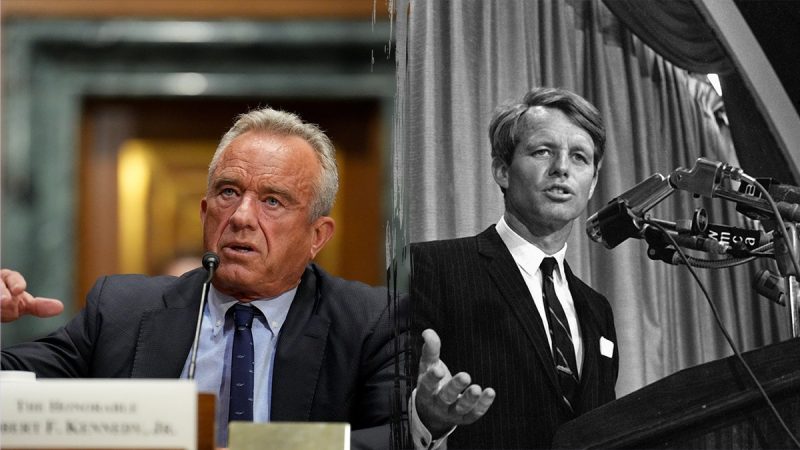
Health Secretary Robert F. Kennedy Jr. cited his father, Robert Kennedy, a former U.S. attorney general and senator from New York, while testifying on Capitol Hill about backlash over the Trump administration’s efforts to reform the Centers for Disease Control and Prevention (CDC).
The Health and Human Services Department (HHS) head signaled a dramatic course-correction at the CDC several days before the hearing, which came amid reports of the administration’s decision to fire CDC Director Susan Monarez. Monarez’s firing spurred backlash among Democrats who complained that the administration’s efforts to reform the CDC, including through staff and budget cuts, were politicizing public health and undermining scientific integrity.
‘The people at the CDC who oversaw [the COVID-19 mitigation] process, who put masks on our children, who closed our schools, are the people who will be leaving,’ Kennedy said during his opening remarks, shortly after the hearing was briefly interrupted by a heckler. ‘That’s why we need bold, competent, and creative new leadership at CDC. People who are able to and willing to chart a new course.’
‘As my father once said, ‘Progress is a nice word, but change is its motivator. And change has its enemies.” The health secretary, who is also the nephew of former President John F. Kennedy, continued: ‘That’s why we need new blood at CDC.’
Thursday’s brief moment when Kennedy invoked his father, who was shot and killed while serving as a U.S. senator in 1968, would not be the first time the Kennedy family has been invoked in the health secretary’s approach to governing. In the lead-up to President Donald Trump’s 2024 election victory, Robert F. Kennedy Jr.’s sister, Kerry Kennedy, slammed him for supporting Trump and ‘desecrat[ing] and trampl[ing] and set[ting] fire’ to their dad’s memory.
The quote from RFK Jr.’s father comes from a speech he made to the United States Conference of Mayors in Chicago in 1963. The remarks came while he was serving as attorney general under former Democratic Party president Lyndon B. Johnson.
Kennedy’s speech in Chicago discussed contemporary economic stresses and poverty in the early 1960s, noting they had resulted in an ‘unwanted stockpile of idle youth,’ according to a copy of the speech shared by the Department of Justice (DOJ). The then-attorney general suggested the issue was exacerbated by a lack of equal access to education, vocation training and poor housing that was occurring at the time.
‘The hardest task is to appoint and incorporate in our work a group of men and women with the power and willingness to look at our community difficulties, dissect them, criticize areas of shortcoming, and make meaningful suggestion,’ Kennedy said during his speech to the conference of mayors. ‘Sometimes, too, it is hard to accept that sort of recommendation. For, sometimes, it carries with it announced or implied criticism of programs that have failed us in the past. Change means that someone’s professional feathers will be ruffled, that a glass-topped desk might be moved to another office or abandoned, that pet programs might die.’
‘Progress is the nice word we like to use. But change is its motivator. And change has its enemies,’ Kennedy continued. ‘The willingness to confront that change will determine how much we shall really do for our youth and how truly meaningful our efforts will be.’
Amid the CDC shakeup being spearheaded by RFK Jr., over 1,000 current and former federal health officials penned a letter this week calling for the HHS secretary’s resignation, arguing he is ‘endanger[ing] the nation’s health.’ Following Monarez’s ouster, several other top CDC officials resigned in protest of the Trump administration’s policies on public health.
Meanwhile, Kennedy penned an op-ed earlier this week in the Wall Street Journal echoing his Thursday remarks on Capitol Hill that the changes coming to the CDC are restoring confidence in an agency that lost the public’s trust due to its response to the COVID-19 virus.
‘Most CDC rank-and-file staff are honest public servants,’ the health secretary wrote. ‘Under this renewed mission, they can do their jobs as scientists without bowing to politics.’

